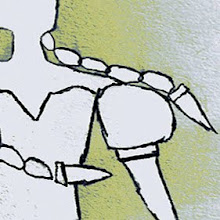Giovanni Rapiti
She was known as the Queen of Sparta, charmed by the Father of Gods and men disguised as a large water bird.
« Leda and the Swan is a story and subject in art from Greek mythology in which the god Zeus seduced, or raped, Leda in the form of a swan.
The subject undoubtedly owed its sixteenth-century popularity to the paradox that it was considered more acceptable to depict a woman in the act of copulation with a swan than with a man. The earliest depictions show the pair love-making with some explicitness—more so than in any depictions of a human pair made by artists of high quality in the same period.
The earliest known explicit Renaissance depiction is one of the many woodcut illustrations to Hypnerotomachia Poliphili, a book published in Venice in 1499. This shows Leda and the Swan making love with gusto.»
More: Leda and the Swan at Wikipedia
[French School]
Leon Reisener
Jacopo Pontormo
Buonarroti Michelangelo
Emmanuel Benner
Bacchiacca
Giovanni Boldini
Jerzy Hulewicz
Joseph Stella
[Lladro porcelain figurine]
[attributed to] Luca Cambiasi
Man Ray
Paolo Veronese
Leonardo da Vinci [detail]
François Edouard Picot
François Boucher
Michel Fingesten
Roger Grillon
Louis Jou
Paul Delvaux
Theodore Gericault
Paul Prosper Tillier
Marcel Bouraine
Leda and the Swan, poem by William Butler Yeats
A sudden blow: the great wings beating still
Above the staggering girl, her thighs caressed
By the dark webs, her nape caught in his bill,
He holds her helpless breast upon his breast.
How can those terrified vague fingers push
The feathered glory from her loosening thighs?
And how can body, laid in that white rush,
But feel the strange heart beating where it lies?
A shudder in the loins engenders there
The broken wall, the burning roof and tower
And Agamemnon dead. Being so caught up,
So mastered by the brute blood of the air,
Did she put on his knowledge with his power
Before the indifferent beak could let her drop?
➳
The following information may answer the question: their consummation resulted in 2 eggs from which hatched Helen (later known as the beautiful Helen of Troy), Clytemnestra, Castor, Pollux.
























